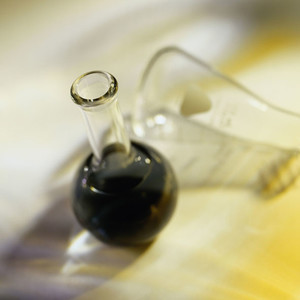On 3 November 2012, the American Academy of Dermatology (AAD) updated its position statement on generics and biosimilar substitution to reflect its views, in particular on interchangeability* and naming of biosimilars.
American dermatologists update position statement on biosimilar substitution
Biosimilars/General
|
Posted 16/11/2012
 0
Post your comment
0
Post your comment

The Biologics Price Competition and Innovation (BPCI) Act of 2009, which includes a legal pathway for the approval of biosimilars, was signed into law by President Barack Obama back in 2010. However, despite three draft guidance documents having been issued by FDA in February 2012 [1], finalized guidelines are still not available.
Despite the lack of finalized guidance there is ongoing discussion in the USA concerning biosimilars, and especially concerning the issue of interchangeability or substitution. The BPCI Act gives FDA the authority to designate a biosimilar as interchangeable with its reference product. This means that the biosimilar may be substituted for the originator product by the pharmacist without reference to the prescribing physician [2].
In the position statement of AAD they advocate prohibiting generics and biosimilar substitution unless all of the following minimal thresholds are met:
- in the case of biosimilars, the biosimilar has a unique non-proprietary name to eliminate confusion, to allow providers to accurately track the therapeutic in a patient’s permanent record, and to allow for the collection of adverse event information
- in the case of biosimilars, the biosimilar has been designated by FDA as interchangeable with the prescribed biological for the specified indicated use
- the prescribing physician provides explicit permission to the pharmacist that a generic drug or biosimilar may be used as a substitute to the original therapeutic or biological medication
- the patient – or patient’s authorized representative – must be informed and educated about a generic drug or biosimilar substitution at the point of sale
- the pharmacist notifies the prescriber in writing or electronic communication within 24 hours prior to the substitution
- upon notification of a substitution, the pharmacy and the prescribing physician are encouraged to retain a permanent record in the patient’s medical record of the generic drug or biosimilar substitution.
Naming of biosimilars is a contentious issue. Advocates for unique naming for biosimilars claim that if a common non-proprietary name were used, patients would not know which drug they are getting and it would be difficult to attribute adverse events to a particular product. On the other hand, advocates for a common name have raised the possibility of overdosing or mis-dosing if different names were used, as a patient could inadvertently be prescribed two versions of the same biosimilar.
As for interchangeability, FDA is still considering the type of information sufficient to enable FDA to determine that a biological product is interchangeable with the reference product. FDA has also indicated in discussions that it will use a step-wise approach, first requiring proof of biosimilarity and then interchangeability. However, without guidance on the matter, there is still much speculation as to how a biosimilar will be designated as interchangeable with the reference product.
The AAD is the largest organization of dermatologists in the world. It was founded in 1938 and represents around 17,000 dermatologists in Canada, USA and around the world.
*Interchangeability is defined in the Patient Protection and Affordable Care Act as a biosimilar product that shows sufficient data to demonstrate that the product: a) is a biosimilar to the reference product, b) can be expected to produce the same clinical result as the reference product in any given patient, and c) would have no enhanced risk in terms of safety and efficacy when switching or alternating between a biosimilar and reference product, when compared to the risk and effectiveness profile of the reference product.
Editor’s comment
If you would like to receive a copy§ of the AAD’s updated position statement, please send us an email.
§For profit organizations subjected to a fee
Related articles
ABPI issues position paper on biosimilars
Naming and interchangeability of biosimilars raised in new survey
US supreme court ruling means biosimilars pathway safe
References
1. GaBI Online - Generics and Biosimilars Initiative. FDA finally issues draft biosimilar guidance [www.gabionline.net]. Mol, Belgium: Pro Pharma Communications International; [cited 2012 Nov 16]. Available from: www.gabionline.net/Guidelines/FDA-finally-issues-draft-biosimilar-guidance
2. GaBI Online - Generics and Biosimilars Initiative. Interchangeability of biosimilars in the US [www.gabionline.net]. Mol, Belgium: Pro Pharma Communications International; [cited 2012 Nov 16]. Available from: www.gabionline.net/Biosimilars/News/Interchangeability-of-biosimilars-in-the-US
Permission granted to reproduce for personal and educational use only. All other reproduction, copy or reprinting of all or part of any ‘Content’ found on this website is strictly prohibited without the prior consent of the publisher. Contact the publisher to obtain permission before redistributing.
Research
Reaching ESG goals in pharmaceutical development
What is the future for the US biosimilar interchangeability designation
News
EMA recommends approval for teriparatide biosimilar Zandoriah
FDA approves third interchangeable ranibizumab biosimilar Nufymco
Most viewed articles
The best selling biotechnology drugs of 2008: the next biosimilars targets
Global biosimilars guideline development – EGA’s perspective
Related content
Samsung Bioepis wins Pyzchiva case; Regeneron patent rulings threaten foreign biosimilars
Chinese biosimilars go global: growth, partnerships, and challenges
Stelara biosimilars enter US market with 85% discount in 2025
IFPMA publishes position on pharmacy-mediated substitution for biosimilars
Samsung Bioepis wins Pyzchiva case; Regeneron patent rulings threaten foreign biosimilars

Biosimilars/General Posted 30/07/2025
Chinese biosimilars go global: growth, partnerships, and challenges

Biosimilars/General Posted 30/04/2025
IFPMA publishes position on pharmacy-mediated substitution for biosimilars

Biosimilars/General Posted 21/03/2025
The best selling biotechnology drugs of 2008: the next biosimilars targets







Post your comment